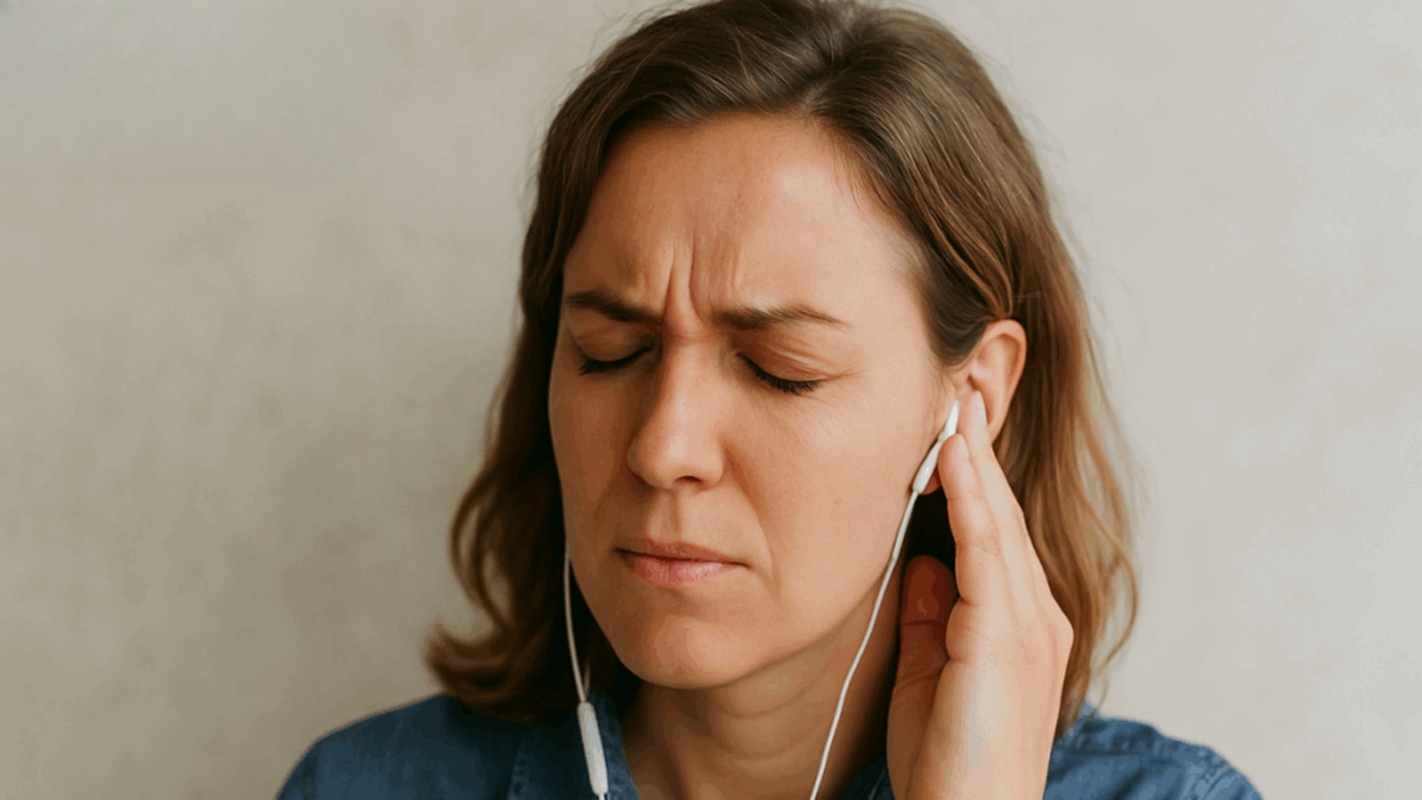Earphones are a daily part of our lives — whether it’s to listen to music, make calls, or even to relax. However, did you know that improper usage can ultimately cause hearing loss? Most people don’t know this until it’s too late.
In this blog, we will take a look at how earphones impact our ears, what signs tell you your ears are being damaged and how to use them safely.
How Earphones Affect Your Ears
Earphones provide direct sound to the ear canal. Earphones can potentially damage the tiny hair cells in the inner ear that relay sound signals to the brain with excessive volume and/or excessive use. These cells help send sound signals to the brain. Once harmed, they do not grow back.
The risk of cell damage increases with earphone use in loud environmental settings, such as the use of public transportation. To block out outside noise, the volume may be turned up higher than normal, which can lead to long-lasting hearing impairment.
How Loud Is Too Loud?
Sound is expressed in dBs. A normal conversation usually measures around 60 decibels (dB). Noise louder than 85 dB may lead to damage to the hearing ability when it is listened to excessively. At full volume, many earphones can reach over 100 decibels.
A simple rule to follow is the 60/60 rule:
- Keep the volume down to 60 per cent or less
- Not more than 60 minutes at one time
The volume should be low enough so that you do not hear other people talking around you, even when you put earphones on.
Signs That Your Hearing May Be Affected
Early hearing damage is often silent. Most people don’t notice the problem until it gets worse. Here are some warning signs:
- A ringing, buzzing, or clicking sound in the ears, known as tinnitus
- Needing to increase the volume on devices
- Trouble hearing in crowded or noisy places
- Asking people to repeat themselves often
- A feeling like your hearing is muffled or your ears are blocked
In rare situations, a person might wake up with hearing loss in one ear. This needs urgent medical attention.
Understanding Types of Hearing Loss
There are different types of hearing loss, and each has its causes and symptoms:
Type | What Happens | Possible Cause |
Sensorineural | Harm to the inner ear or the nerve that helps you hear | Loud noise, ageing, and illness |
Conductive | Sound is blocked from reaching the inner ear | Earwax, fluid, injury |
Mixed | A mix of both | Injury or untreated infections |
Using earphones at high volume can cause sensorineural hearing loss, which often cannot be reversed.
What is Fluctuating Hearing Loss?
Fluctuating hearing loss refers to changes in your hearing that can improve or worsen at different times. Fluctuating hearing loss can come and go, often in connection with fluid build-up, pressure fluctuations, and ear infections.
This hearing loss can be worse with repeated exposure to loud sounds. That includes listening to music through earphones at a high volume. If you notice that your hearing ability changes from one day to another, then it is worthwhile to seek help and have it assessed.
Tips to Use Earphones Safely
You don’t have to stop using earphones completely. Just follow some simple safety tips:
- Use the Proper Type: In-ear earphones are inserted firmly in your ear canal and therefore, they are considered to be potentially dangerous compared to over-ear headphones.
- The use of Noise-cancelling Earphones: These aid in filtering out the other noise, thereby not requiring you to turn up the volume to an extent.
- Practice the 60/60 Rule: The volume should not be more than 60%, and no longer than 60 minutes at a time.
- Watch Listening Breaks: Provide your ears with a 10-minute break following each hour of listening.
- Do not Use Earphones When in a Noisy Area: You have more chances of turning up the sound in such environments, hence exposing your ears to a greater danger.
- Clean Your Earphones: Dirty earphones may include ear infection, causing a slight matter of jeopardy in hearing or even conductive hearing loss in long-term cases.
Can Earphones Lead to Sudden Hearing Loss?
Although rare, sudden hearing loss can happen, sometimes caused by an unexpected volume spike or device malfunction. This is when hearing drops all at once, usually in one ear, without warning.
Symptoms may include:
- A sudden “pop” sound in the ear
- Feeling of fullness or pressure
- Quick loss of hearing in one ear
- Dizziness or balance issues
If this happens, go to a doctor immediately. Quick treatment can make a big difference in recovery.
Conclsuion
Earphones are a fantastic source of entertainment, communication and learning—but only if you use them safely. Prolonged use at a sustained high volume can cause permanent damage to your hearing.
You can help preserve your hearing health by following safe earphone habits and by being aware of the risks to your hearing health, including sudden hearing loss (and fluctuating hearing loss) and other types of hearing loss.
Enjoy your earphones without damaging your ears. Look after your hearing, so you don’t miss the sounds you love.
















